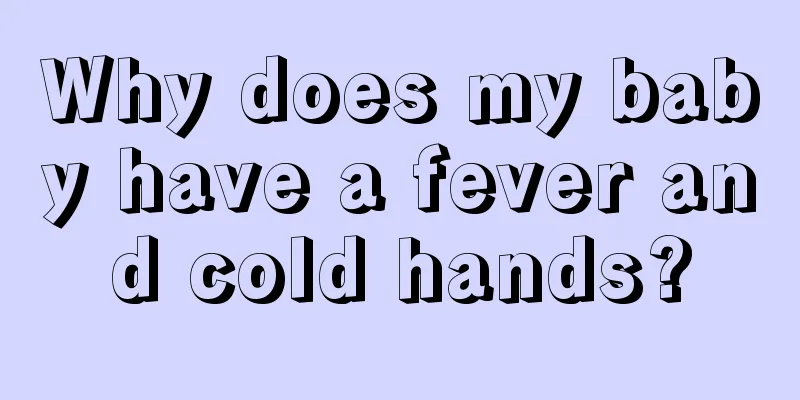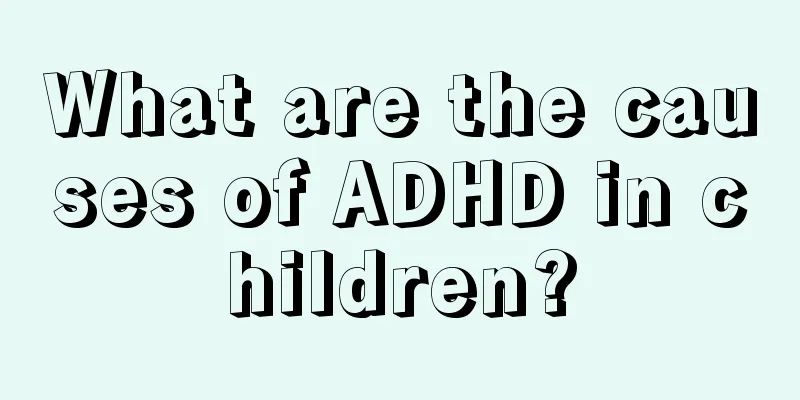Why do children not like to eat?

|
As people's living conditions are getting better and better, the diet of children at home is getting better and better in all aspects. Many children don’t like to eat for some reasons. We all know that three meals a day are very important for people. So many parents want to know why their children don’t like to eat? So as to solve the problem of their children not liking to eat. Let me introduce it to you below, I hope it will be helpful to you. Sweets affect appetite Sweets are the favorite food of most children. Although these high-calorie foods are delicious, they cannot supplement the necessary protein and seriously affect children's appetite. Most children with poor appetite rarely drink plain water. They only drink various beverages such as orange juice, fruit juice, sugar water, honey water, etc. This will cause a large amount of sugar to be taken into the body, increasing the sugar concentration. When blood sugar reaches a certain level, it will excite the satiety center and inhibit the feeding center. Therefore, these children will hardly feel hungry and have no desire to eat. In addition, as the weather gets warmer, various cold drinks will be available on the market. Drinking cold drinks frequently will also cause children to lack a sense of hunger. First, cold drinks contain high sugar content, which makes children eat too much sweets; second, children's gastrointestinal function is relatively weak, and drinking cold drinks frequently will cause gastrointestinal dysfunction, and children's appetite will naturally decrease. Zinc deficiency causes taste changes Clinically, it is found that anorexia and pica are related to zinc deficiency in the body. Examinations found that children whose zinc levels were lower than normal had worse taste than healthy children, and the decrease in taste sensitivity can cause a loss of appetite. The effect of zinc on appetite is mainly reflected in the following aspects: 1. One of the components of taste buds in saliva is zinc, so when zinc is deficient, it will affect taste and appetite; 2. Zinc deficiency can affect the function of taste buds and reduce taste function; 3. Zinc deficiency can lead to mucosal hyperplasia and incomplete keratinization, so that a large number of desquamated epithelial cells block the small holes of taste buds, making it difficult for food to contact the taste buds and the taste becomes insensitive. By observing the tongue of some zinc-deficient children with the naked eye, we can find that the small protrusions on their tongue surface are flat or atrophied compared with the tongue of a normal child. Some children with zinc deficiency have obvious oral mucosal exfoliation, forming geographic tongue. Psychological factors cannot be ignored Under normal circumstances, before a child eats, his stomach is empty, his blood sugar level drops, he begins to feel hungry, and his appetite is good. However, some reasons may interfere with this rule. Many parents often do not know that their children's gastrointestinal function can be regulated by themselves, and they always force their children to eat, and some even use punishment to force their children to eat. In the long run, the morbid psychology caused by this forced eating is also one of the reasons that affect children's appetite. Parents' picky eating affects their children Some parents like to pick the foods they think are the best and most nutritious for their children. This picky practice leaves a deep impression on the children, and the children will naturally tend to those so-called good foods, and eat less or even not eat those so-called unpalatable but nutritious foods. Many times, children's refusal to eat is partly related to their family's living habits and the influence of their parents. Therefore, parents are reminded to pay attention to this. Because children are in the period of growth, parents should not reduce their children's resistance and cause a lot of troubles to themselves and their families. This is not good. |
<<: Why do children refuse to eat?
>>: How to deal with baby's sweat herpes
Recommend
What to do if your child grinds his teeth while sleeping
Grinding teeth while sleeping is a problem that t...
Why do baby's fingernails turn white?
If your baby's fingernails are simply white, ...
What are the symptoms of indigestion in one-year-old babies?
Babies often have symptoms of indigestion. Some b...
Why do babies like to spit?
Babies aged 3 to 4 months are prone to drooling. ...
Is it okay for a one-year-old baby to toss and turn when sleeping at night?
Babies are very quiet when they sleep, because th...
How to treat mumps in primary school students?
Mumps begins to spread in late winter and early s...
Why are the palms and soles of the baby hot?
Children's health problems are what parents w...
What should children with amblyopia eat for their eyes?
Amblyopia is a common eye disease, which brings m...
What to do if the child does not grow taller
Parents all hope that their children are tall so ...
What should I do if my child has tonsillitis and hoarseness?
What should you do if your child has tonsillitis ...
What should I do if my child gets prickly heat?
Children often get prickly heat in the summer, es...
Why do newborns cry and don't sleep at night?
The situation of newborns crying and not sleeping...
What should I do if I have fetal bile duct cyst?
Many pregnant mothers find that the gallbladder o...
Why do babies get thrush?
There are many reasons for thrush in babies. For ...
What to look out for when a child has a heart murmur
In fact, children's resistance is relatively ...









